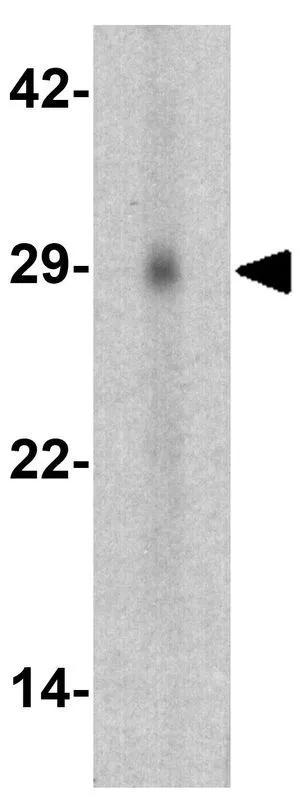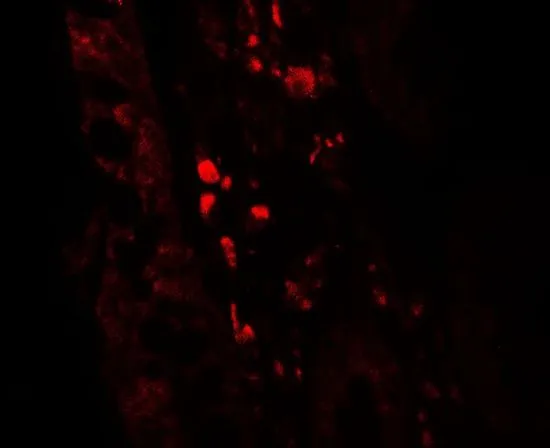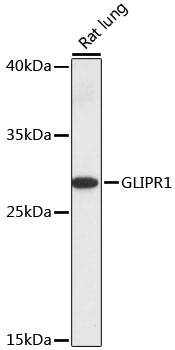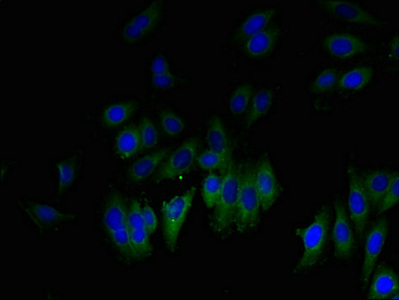
WB analysis of human small intestine tissue lysate using GTX17212 GLIPR1 antibody. Working concentration : 1 μg/ml
GLIPR1 antibody
GTX17212
ApplicationsWestern Blot, ELISA, ImmunoHistoChemistry, ImmunoHistoChemistry Paraffin
Product group Antibodies
ReactivityHuman, Mouse
TargetGLIPR1
Overview
- SupplierGeneTex
- Product NameGLIPR1 antibody
- Delivery Days Customer9
- Application Supplier NoteWB: 1 - 2 microg/mL. *Optimal dilutions/concentrations should be determined by the researcher.Not tested in other applications.
- ApplicationsWestern Blot, ELISA, ImmunoHistoChemistry, ImmunoHistoChemistry Paraffin
- CertificationResearch Use Only
- ClonalityPolyclonal
- Concentration1 mg/ml
- ConjugateUnconjugated
- Gene ID11010
- Target nameGLIPR1
- Target descriptionGLI pathogenesis related 1
- Target synonymsCRISP7, GLIPR, RTVP1, glioma pathogenesis-related protein 1, GLI pathogenesis-related 1 (glioma), gliPR 1, protein RTVP-1, related to testis-specific, vespid, and pathogenesis proteins 1, testes-specific vespid and pathogenesis protein 1
- HostRabbit
- IsotypeIgG
- Protein IDP48060
- Protein NameGlioma pathogenesis-related protein 1
- Scientific DescriptionThis gene encodes a protein with similarity to both the pathogenesis-related protein (PR) superfamily and the cysteine-rich secretory protein (CRISP) family. Increased expression of this gene is associated with myelomocytic differentiation in macrophage and decreased expression of this gene through gene methylation is associated with prostate cancer. The protein has proapoptotic activities in prostate and bladder cancer cells. This gene is a member of a cluster on chromosome 12 containing two other similar genes. Alternatively spliced variants which encode different protein isoforms have been described; however, not all variants have been fully characterized. [provided by RefSeq, Jul 2008]
- ReactivityHuman, Mouse
- Storage Instruction-20°C or -80°C,2°C to 8°C
- UNSPSC41116161







